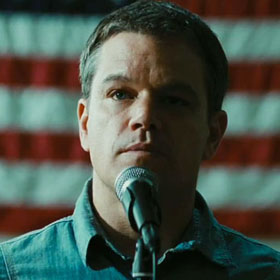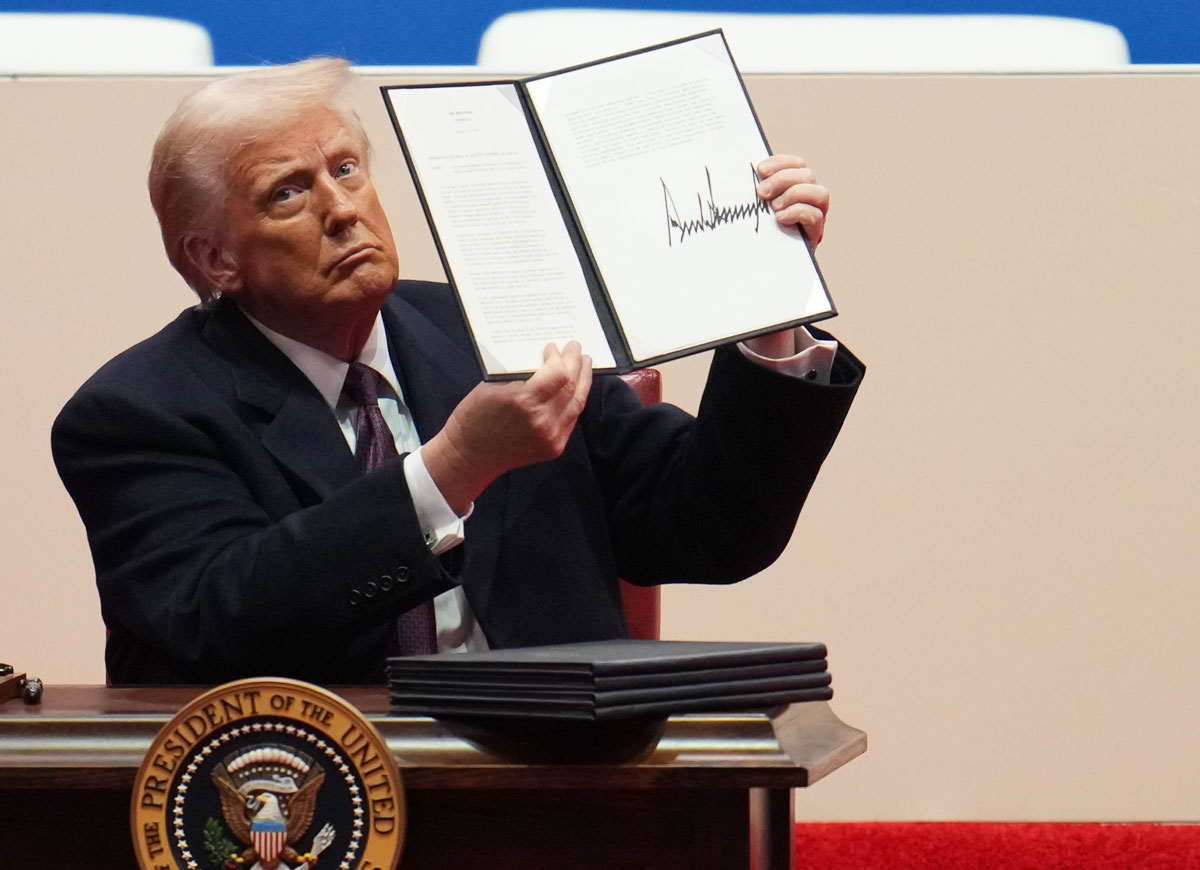'Promised Land' Movie Review: Matt Damon Adds Moral Depth To 'Promised Land'

3.5/5
In Promised Land, Matt Damon plays Steve Butler, a corporate suit who travels around the country convincing small towns to sell over the rights to their land so they can be drilled for natural gas, a practice commonly known as “fracking.” But despite Steve’s big business associations and suave salesmen strategies—the first thing he does when he arrives in his latest target, the town of McKinley, with his partner in crime, Sue Thomason (Frances McDormand), is buy a flannel shirt to look more like the locals—he too came from humble beginnings, and he vividly remembers what it was like when his hometown’s industry crumbled and left the farmers begging for scraps. He’s the best pitch-man in the business because his voice carries the desperation of a man who saw things go awry way back when. Take the cash and run, he tells everyone.
Steve is uncannily successful and McKinley should be a cakewalk, but his mission is complicated first by the town’s surprising decision to vote on the matter, and then by the arrival of an environmental advocate, Dustin Noble (John Krasinski), who strolls in with a welcoming smile, a salt-of-the-earth mentality and his own sad story to boot: Dustin’s family sold their land for drilling money and shortly thereafter their land dried up and all of their livestock died. What follows is a nitty-gritty battle between Steve and Dustin for each and every person's vote.
Much of Promised Land succeeds because it focuses on the moral struggle within Steve, who must wrestle with the risk of fracking and greed of big business against his own motives to do what he believes is right. Damon underplays Steve’s internal conflict so well that I’d say it’s one of the better individual performances of the year, and he and Krasinski, who’s nice-guy Dustin has an edge of swagger, play off each other well.
Unfortunately, Damon and Krasinski will likely be overlooked come awards season (Promised Land just made the cut for Academy consideration) because of a few loose snags. For one, Rosemarie DeWitt’s character Alice, a pretty school teacher who draws the eye of both Steve and Dustin, adds a thin love story component that takes away from an otherwise focused plot. And Hal Holbrook’s presence as the wise old man feels forced; his lines offer up little more than a brief summary of the anti-fracking argument at a town hall meeting.
But what really holds back Promised Land is its ending. As the movie winds down we’re given two heavy twists that tease out the uncertainties regarding Steve, Dustin, McKinley and fracking. Unfortunately, all of this built-up tension is squandered in the end because the movie has to balance too many different characters, and it falls prey to the cliches of Hollywood, tying matters up with a nice, neat bow.
I wish Promised Land had ended five minutes earlier than it did. Instead it got greedy in the home stretch and tried to appease the blockbuster crowd, and may eventually relegate itself to Saturday afternoon On-Demand rental status. As I'm sure Steve Butler would agree, a truly great pitch should leave you wanting more, not less.
For more like this 'Promised Land' movie review, check out Uinterview's movie review section here.
RELATED ARTICLES
Get the most-revealing celebrity conversations with the uInterview podcast!







Leave a comment